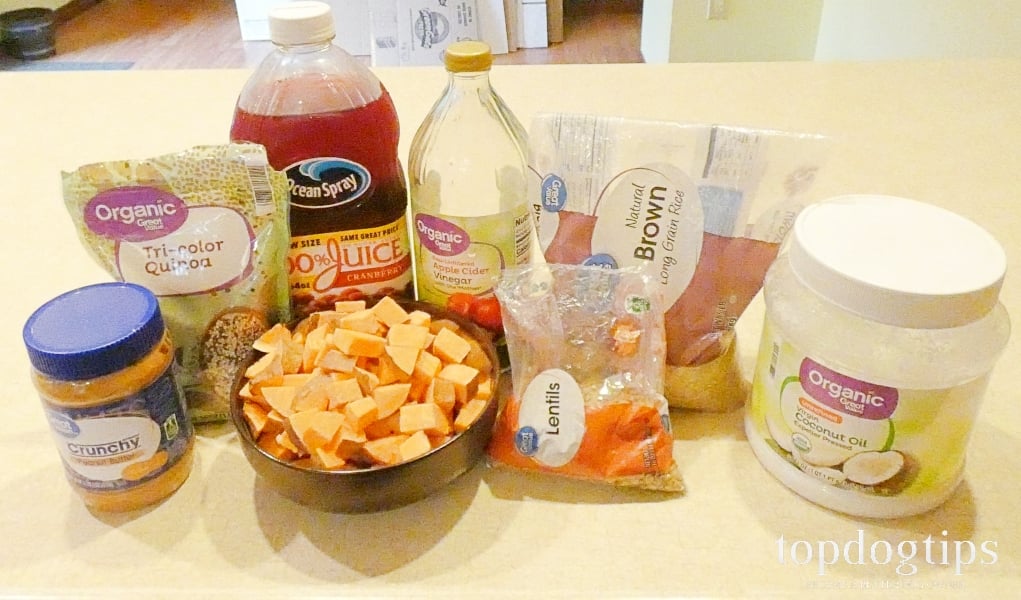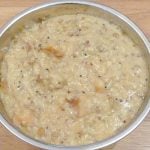As vegetarianism and veganism continue to grow in popularity, many pet owners are wondering if their dogs can eat these diets too. This meatless homemade dog food is a healthy option for most dogs. However, it's important to consult a canine nutritionist about the supplements that will need to be added in order to provide balanced nutrition.
There may be several reasons to choose to feed your dog a vegan or vegetarian diet. The most common reasons are either ethical – if the owners have turned vegan to fight against animal cruelty, they wish the same for their dogs – or health related reasons.
It may surprise you, but experts say that dogs can definitely live on plant-based only foods (if need be). Generally, a meatless homemade dog food diet is a subject of heated debate among pet nutritionists, animal scientists and veterinarians. But, it's still an unexplored area of canine nutrition that needs further study.
The concern with this diet is that it does not provide 100% of the nutrition that a canine needs. That's why it is vital to your dog's health to consult your veterinarian or a certified canine nutritionist before switching your pet to a meatless diet.
They will recommend additional supplements to add to your pup's vegetarian diet that will make up for the lacking nutrients, especially for those with underlying health issues. When done correctly, a vegetarian diet can be a healthy way to feed your canine companion.
Meatless Homemade Dog Food
 If you've already cleared this diet with your veterinarian, this meatless homemade dog food recipe could be a great addition to your pet's diet. Keep in mind that it is not 100% nutritionally balanced, so you'll need to add the required supplements before feeding it your pooch.
If you've already cleared this diet with your veterinarian, this meatless homemade dog food recipe could be a great addition to your pet's diet. Keep in mind that it is not 100% nutritionally balanced, so you'll need to add the required supplements before feeding it your pooch.
Recipe: Meatless Homemade Dog Food
As vegetarianism and veganism continue to grow in popularity, many pet owners are wondering if their dogs can eat these diets too. This meatless homemade dog food is a healthy option for most dogs. However, it's important to consult a canine nutritionist about the supplements that will need to be added in order to provide balanced nutrition.
- Prep Time: 10 minutes
- Cook Time: 30 minutes
- Total Time: 40 minutes
- Yield: about 12 cups of food 1x
- Category: Cooked Food
- Method: Stovetop
- Cuisine: Dog Food
Ingredients
- 3 sweet potatoes (cubed)
- 3 cups peanut butter (creamy or crunchy)
- 6 cups water
- 1/2 cup brown rice
- 1/2 cup quinoa
- 1 cup lentils
- 1 cup apple cider vinegar
- 1/2 cup 100% cranberry juice
- 1/2 cup coconut oil
Instructions
Bring the water to a boil in a large pot. Once boiling, add the rice, quinoa, lentils and sweet potatoes. Reduce the heat to low, and allow the ingredients to simmer for 30 minutes. Stir the food occasionally.
Remove the recipe from the heat. Add the peanut butter, apple cider vinegar, cranberry juice and coconut oil. The heat from the food will melt the coconut oil and peanut butter, making it easy to thoroughly mix the meatless homemade dog food.
Once the food has cooled, you can feed it to your dog according to the serving sizes recommended below.
Nutrition
- Serving Size: 1/2 cup
- Calories: 308
- Sugar: 5.6 g
- Sodium: 157 mg
- Fat: 21.2 g
- Carbohydrates: 22.1 g
- Fiber: 5.2 g
- Protein: 11.2 g
- Cholesterol: 0 mg
How much to feed: I recommend feeding about 1/2 cup of food for every 20 pounds of body weight. This recommendation is for 2 servings per day. This is just a guideline. Lazier pets and senior dogs may not need as many. It is extremely important to consult your veterinarian about the best serving size for your dog.
How to store: You can store the leftover meatless homemade dog food in an airtight container in the refrigerator for 3-5 days or freeze them and it’ll keep for up to 3 months. Keep in mind that this recipe includes no preservatives, so it won't last nearly as long as commercial dog food.
For More Information
We publish many homemade dog food and treat recipes every month. For more recipes, pet food cooking tips, and advice, see our “Recipes” section. If you're new to home-cooked dog food subject, I recommend you read more about “How Much To Feed” to understand serving sizes, “What Supplements To Use” to create well-balanced meals, and “How To Store” for tips on simple and easy homemade dog food storing in a fridge or a freezer.












